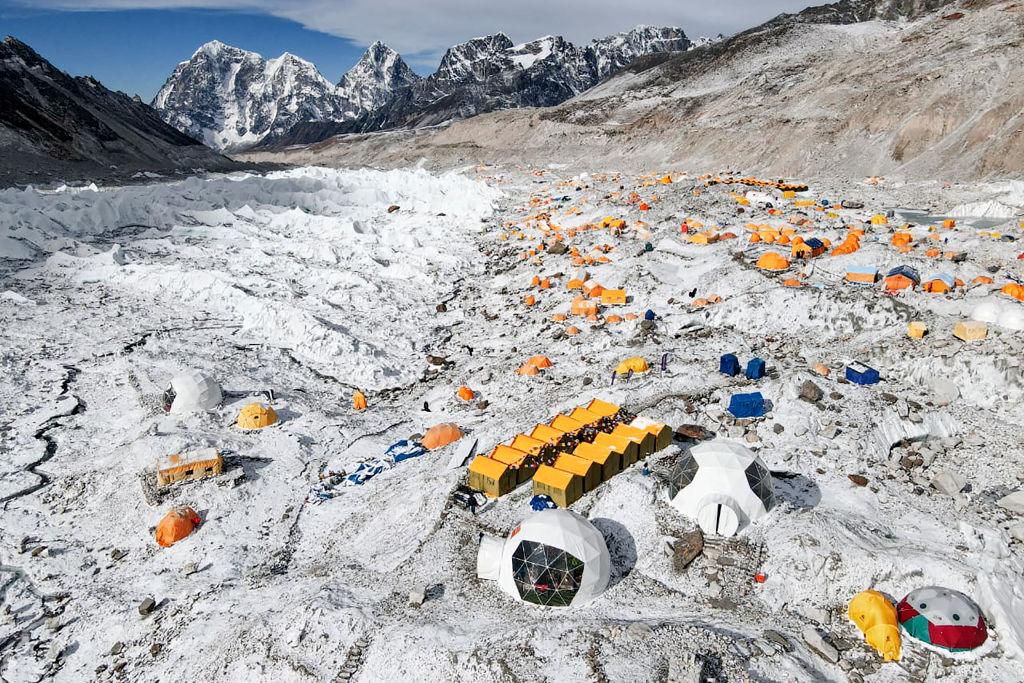
Everest Base Camp
Everest Base Camp: The Heart of Himalayan Adventure: Historical Significance
Everest Base Camp (EBC) has long been a symbol of mountaineering adventure, serving as the starting point for climbers attempting to summit the world’s tallest peak, Mount Everest. Over the decades, EBC has evolved from a mere staging area for mountaineers into a world-renowned destination for trekkers from around the globe. It is where climbers gather to prepare for their grueling ascent, and it has witnessed some of the most significant moments in mountaineering history.
Historically, Everest Base Camp has played a crucial role in many of the legendary expeditions that have sought to conquer Mount Everest. It is here that climbers, guides, and Sherpas have formed tight-knit teams, preparing for their final summit push. The base camp has hosted famous climbers such as Sir Edmund Hillary, Tenzing Norgay, and Reinhold Messner, all of whom have left their mark on the Everest legacy. Today, it stands as a testament to the courage, resilience, and perseverance required to tackle one of the most formidable mountains in the world.
For trekkers, reaching Everest Base Camp is a significant milestone, representing not only the proximity to the world’s highest point but also the deep history and challenges of the mountain. Visitors to EBC walk the same trails that have been traveled by countless adventurers over the years, making the journey both a physical and historical pilgrimage.
Why It's Important for Trekkers
For trekkers, reaching Everest Base Camp is often the culmination of a lifelong dream. It offers a unique opportunity to experience the grandeur of Mount Everest and the surrounding Himalayan range, while remaining at a safe distance from the extreme challenges of high-altitude climbing. The trek to EBC is not only a physical challenge but an emotional and spiritual journey that connects trekkers to the mountain's rich history.
As trekkers ascend through the Khumbu Valley, they pass through traditional Sherpa villages, ancient monasteries, and spectacular landscapes, each step providing a deeper connection to the people and culture of the region. The trek is filled with dramatic views of towering peaks such as Ama Dablam, Nuptse, and Lhotse, and the path offers unforgettable vistas that make every moment on the trail rewarding.
Standing at Everest Base Camp itself is a powerful experience. For many trekkers, it is not about scaling the mountain but about standing in the shadow of the world's highest peak and feeling the profound sense of accomplishment that comes with completing such a remarkable journey. EBC offers trekkers the chance to reflect on the boldness of those who have attempted the summit, and the challenges they faced along the way.
In addition, trekkers gain a greater appreciation for the Sherpa people, whose history is deeply entwined with Everest and whose incredible strength and resilience make these expeditions possible. At EBC, trekkers can witness firsthand the dedication and sacrifice required to navigate this remote and treacherous terrain, leaving them with a lasting respect for the mountain and the culture that has supported it for centuries.
In summary, Everest Base Camp represents more than just a destination; it symbolizes the spirit of adventure, history, and human endurance. For trekkers, it is an opportunity to experience the awe-inspiring beauty of the Himalayas, pay homage to the mountaineering pioneers, and make their own connection to Mount Everest, the crown jewel of the world’s mountains.



